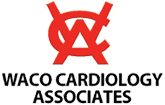Palpitation is when one feels in their chest as if their heart is beating unusually rapidly or irregularly. It can be a brief sensation for only a moment or can be a sustained sensation for several seconds and rarely even minutes or longer. Palpitations can also refer to a feeling that the heart is pounding harder than usual but not necessarily faster. Palpitations can be due to an arrhythmia, usually an abnormally rapid heart rate. When the heart rate is over 100 beats per minute, it is called tachycardia. One can have sinus tachycardia where the heart rate increases in a normal way due to signals from the body. When it is caused by things like exercise, fever, dehydration, or excitement, it can be a normal physiological response. Other times, the heart is responding to signals from the body that are not normal. This might signal a medical problem not involving the heart itself. Palpitations can be due to a normal physiologic response like rigorous exercise where the heart is pumping very hard and rapidly. It can occur when one is nervous, anxious, afraid, or excited and is not considered abnormal in those situations. People can have a propensity to abnormal amounts of anxiety such as panic disorder leading to recurrent palpitations, chest pains, and shortness of breath. One can have palpitations even with no increase in heart rate in these situations. The sensation of palpitations is real to the person but it might not indicate a problem with the heart. However, these symptoms prompt a medical evaluation as they could be due to a true cardiac arrhythmia. A cardiac arrhythmia is a condition caused by a problem with the heart’s electrical system. These abnormal rhythms make the heart pump less efficiently. It can be a pure “electrical” problem of the heart where the heart is healthy and normal but arrhythmias can also occur with underlying heart disease. Many arrhythmias have no known cause. However, there are various factors that can contribute to arrhythmias. These include; heart disease, high blood pressure, diabetes, smoking, excessive alcohol consumption, and stress. Some substances, including certain over-the-counter and prescription medications, nutritional supplements, and herb-based remedies, cause arrhythmias in some people. Fast heart rate symptoms and treatments If a palpitation is brief, it might be due to an isolated extra beat in the heart. When this occurs, they usually have had premature extra beat that they do not feel then there is a brief pause until the next beat. They feel as though the heart skipped a beat. Isolated premature beat are often benign and require no specific treatment. If they occur from the atria, they are called a premature atrial contraction (PAC) and if they occur from the ventricles, they are called a premature ventricular contraction (PVC). PAC’s are almost always benign. PVC’s can be a sign of more serious heart disease but usually healthy people with isolated and infrequent PVC’s have no serious heart problem. A heart rate of over 100 beats per minute is called tachycardia. It can cause palpitations, chest pain, dizziness, swooning, and fainting if the heart beats too fast for the blood to circulate well. The heartbeats may have a regular or irregular rhythm. When the fast heartbeat begins in the ventricles, what is called ventricular tachycardia (v tach), it may interfere with the heart’s ability to pump enough blood to the brain and other vital organs. This type of arrhythmia can quickly degenerate into ventricular fibrillation (v fib). Ventricular fibrillation is the most serious heart rhythm abnormality and can be fatal if left untreated. In v fib, the ventricles tremble and the heart cannot pump any blood. This can cause sudden cardiac death unless immediate medical intervention is received. If treated in time, ventricular tachycardia and ventricular fibrillation sometimes can revert to a normal rhythm using a defibrillator. An effective way to treat these potentially fatal rhythms in someone felt to be at increased risk of developing these arrhythmias, is through the use of an electronic device called an implantable cardiac defibrillator (ICD). Fast heart rhythms can be controlled with medications or by identifying and destroying the source of the rhythm abnormality. When fast heartbeats begin in the atria, it is called a supraventricular tachycardia (SVT). Reentrant tachycardia occurs when there is a “short-circuit” of electrical signals between the atria and ventricles. Normally, the only way that signals go between the atria and ventricles is through the AV node. If there is another electrical pathway between the atria and ventricles, a “closed circuit” may occur, in which the electrical current travels quickly over and over again through the short circuit and the AV node and produces a very rapid heart rate. These SVT’s sometimes can be controlled with medications. Sometimes they can even be cured by using electrical catheters threaded up into the heart to map out the abnormality, and then ablating the abnormality using a focused amount of energy (an ablation). In atrial fibrillation, the atria tremble instead of beating efficiently. The atria beat at over 300 beats per minute. This reduces the heart’s efficiency because less blood flows through the atria toward the ventricles. Medications can be prescribed to help control the heart rate and/or rhythm. In addition to causing symptoms such as palpitations, chest pain, shortness of breath or dizziness, clots could form in the atria due to blood stagnating and this increases the risk of stroke. This is why many of these patients need to take a blood thinner (warfarin or Coumadin). Diagnosis of arrhythmias The specific type of heart rhythm abnormality causing the arrhythmia or symptoms can be diagnosed on an electrocardiogram (ECG) if the arrhythmia is occurring while the ECG is being performed. Otherwise, a Holter monitor can be placed and worn by a patient (usually for 24 hours). If symptoms are occurring every several days or weeks, then different types of event recorders can be used to help correlate the symptoms with the type of arrhythmia. When one has palpitations, the above tests are often very useful to confirm if an arrhythmia is present.
Caring for the hearts of Central Texas Since 1971
(254) 399-5400

